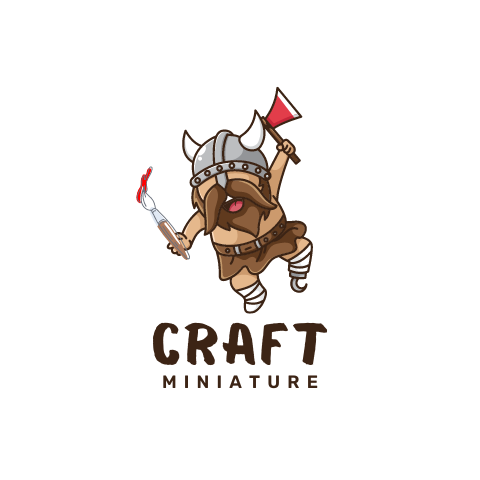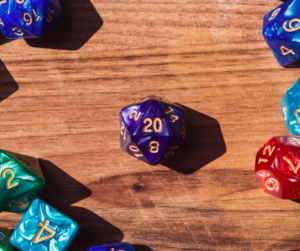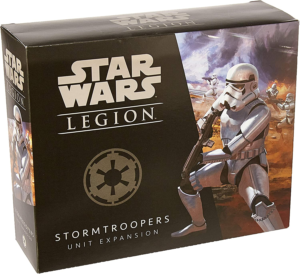The S20 system is often referenced as the system that underlies games such as Dungeons and Dragons 3.0 and 3.5 editions, as well as many other role-playing games. But what exactly is it?
In 2000, Wizards of the Coast published the d20 System, a role-playing game system that uses a 20-sided die to determine the outcome of actions taken by player characters. The system is named after the 20-sided dice central to the core mechanics of many actions in the game.
The d20 System has been used for many different games over the years, including Dungeons & Dragons, Star Wars: The Roleplaying Game, and Mutants & Masterminds. But what is it exactly? And why should you care?
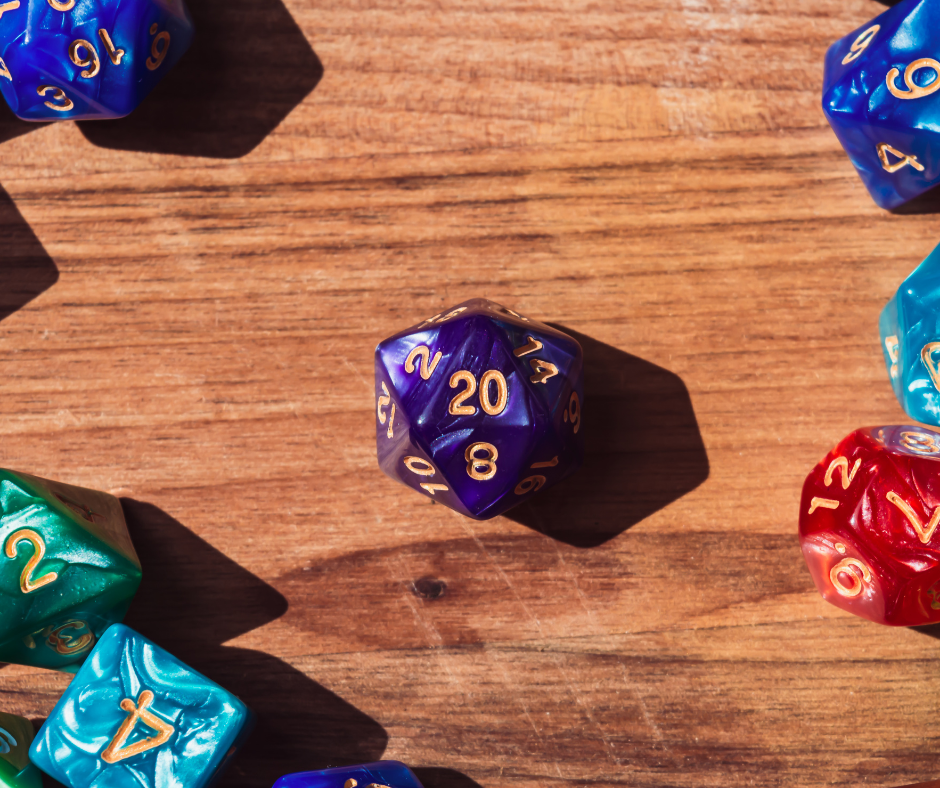
What is the d20 system?
The d20 system is a role-playing game system that uses a 20-sided die, or “d20,” to resolve actions taken by player characters. The system was originally designed for the third edition of Dungeons & Dragons but has since been used for many other games.
The d20 system is so named because of the die central to its mechanics. In most d20 games, player characters will attempt actions with a chance of success or failure. The outcome of these actions is determined by rolling a 20-sided die and comparing the result to a target number. If the result is equal to or higher than the target number, the action succeeds; if it is lower, the action fails.
Character Attributes
In the d20 system, the outcome from the roll is supported by the character’s aptitude, where modifiers are applied to the final dice roll. These aptitudes were defined by six key attributes:
Strength: A measure of a character’s raw physical power.
Dexterity: A measure of a character’s agility and reflexes.
Constitution: A measure of a character’s health and stamina.
Intelligence: A measure of a character’s reasoning and memory.
Wisdom: A measure of a character’s perception and insight.
Charisma: A measure of a character’s force of personality.
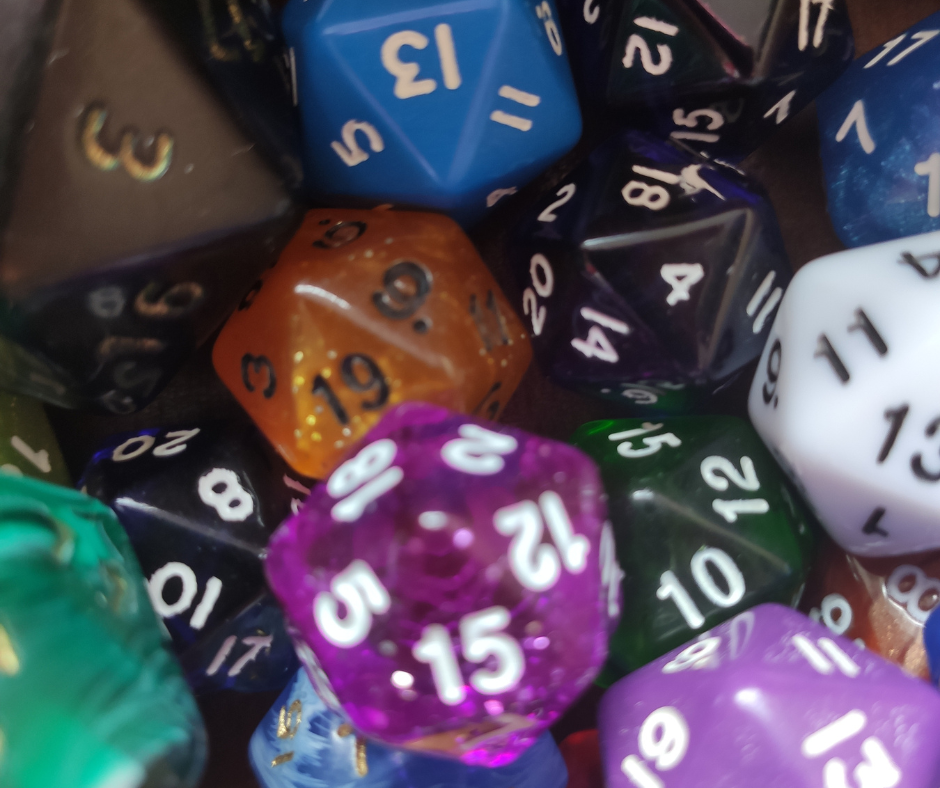
d20 games use these key attributes to give characters a range of capabilities. The higher the attribute, the greater the character’s aptitude. For example, a character with a high Strength score will be able to lift heavier objects and deal more damage in combat than a character with a low Strength score.
These character attributes would negatively or positively impact the outcome of the d20 roll, giving a positive or negative total to the score. In turn, increasing or decreasing the likelihood of an event occurring.
Situational Modifiers
In addition to character attributes, there are also various situational modifiers that can affect the outcome of a d20 roll. These can be positive or negative and represent anything from environmental factors to equipment bonuses.
For example, if a character is trying to sneak past a guard, they may receive a bonus to their Dexterity roll if they wear dark clothing (a positive situational modifier). However, if they are trying to sneak through a well-lit area, they may receive a penalty to their Dexterity roll (a negative situational modifier).
These modifiers can come from a variety of sources and can stack on top of each other. As such, it’s important to keep track of all modifiers when making a d20 roll.
There are many different d20 games on the market, each with its own unique setting and rules. However, all d20 games share the same basic mechanic: using a 20-sided die to resolve actions.
Brief History of the D20 system
2000 – Release of the D20 system
The d20 system was created by Wizards of the Coast in 2000 as a role-playing game system for the 3rd edition of Dungeons & Dragons. The system is named after the 20-sided dice central to the core mechanics of many actions in the game.
Upon its creation, Wizards of the Coast offered a license known as the Open Game License or OGL. The OGL allowed other companies to create their own games using the d20 system mechanic. Alongside this, they released the d20 Trademark license that allowed other creators to use the official “d20” mark on their packaging. The license identified these products as being compatible with the source material of D&D.
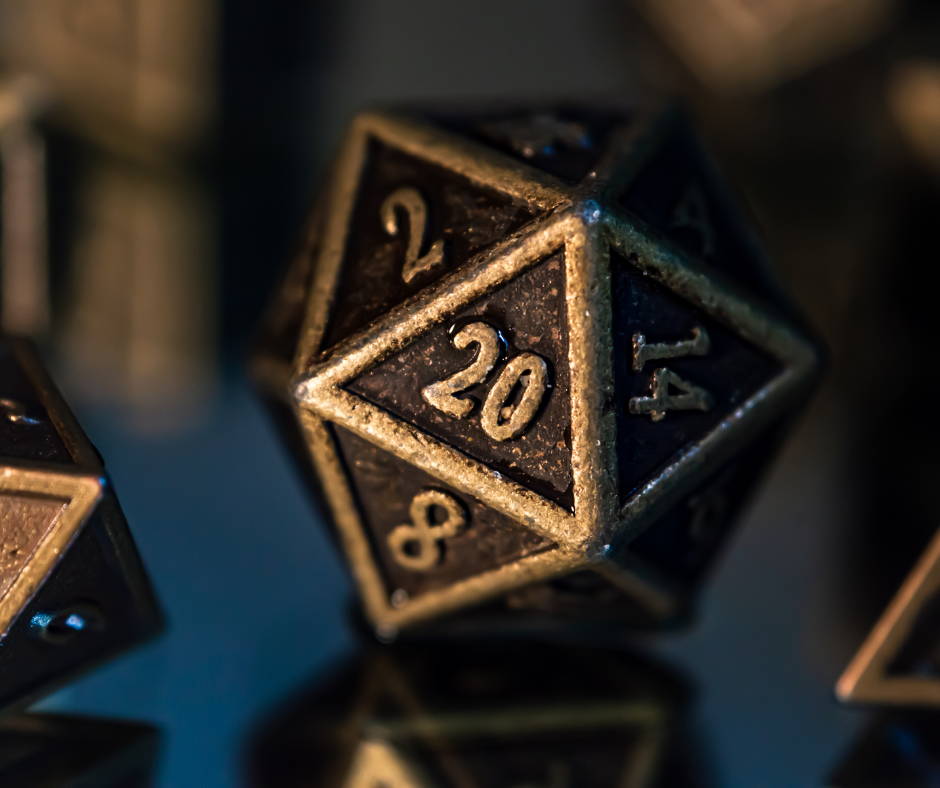
Unlike the OGL, the d20 Trademark license could be cancelled and amended without notice by Wizards of the Coast.
As a result, many d20 games were created in the following years, each with its own setting and rules. The licensing brought about a boom in RPGs which was the intention of Wizards of the Coast, the market leader at the time. The strategy was clear, more games on the market equaled more interest in RPGs benefiting Wizards of the Coast. Some notable d20 games that exist today include:
- Pathfinder
- Star Wars RPG
- The Lord of the Rings RPG
- Call of Cthulhu
2003 – License Changes
Unfortunately, following the release of the explicit Book of Erotic Fantasy in 2003, Wizards of the Coast announced amendments to the D20 license, ensuring their brand was not tarnished. This went further when Wizards updated the source material of D&D in August 2003 to 3.5, leaving many creators under the D20 license stuck with old material.
This, coupled with the release of rushed and poor-quality adventures under the D20 license – due to petty and established content creators – led to a weakening in customer sentiment towards the D20 trademark.
This weakening of the brand led established and new creators to operate only under the OGL, forgoing the D20 license. This meant they created their own source material but continued to use the D20 system. This led to direct competition with D&D and created a new wave of RPGs that continue to be created even till today.
Since its inception, the d20 system has been used for many games, including Dungeons & Dragons, Star Wars: The Roleplaying Game, and Mutants & Masterminds. In recent years, the d20 system has seen a resurgence in popularity due in part to the release of several highly successful Kickstarter for d20-based games, and the depiction of d20 games in popular culture such as Big Bang Theory and Stanger Things.
Why should you care about the d20 system?
The d20 system is a great way to get into role-playing games. If you’re interested in trying one of these games but don’t know where to start, the d20 system is a great option.
The d20 system is also a good choice if you’re looking for a role-playing game with a wide variety of options. There are many different d20 games on the market, each with its own unique setting and rules. This means that no matter what kind of game you’re looking for, there’s likely a d20 game that will fit your interests.
Finally, the d20 system is a good choice if you’re looking for a role-playing game with a solid foundation. The system has been around for over 20 years and has been used for many games. This means that it is well-tested and has a lot of support from the role-playing community.
The benefits of using the d20 system
The d20 system has many benefits, including:
- The system is a great way to get into role-playing games.
- You can be confident that the game remains interesting throughout.
- It is a good choice if you’re looking for a game with a solid foundation that is easy to understand.
- The system is well-tested and has a lot of support from the role-playing community.
If you’re interested in trying a role-playing game, the d20 system is a great choice. With its many benefits, it is sure to provide you with a fun and rewarding gaming experience.
Final Thoughts
The d20 system is a great way to get into role-playing games. It is a good choice if you’re looking for a game with a wide variety of options, a solid foundation, and good support from the role-playing community. With its many benefits, the d20 system is sure to provide you with a fun and rewarding gaming experience.
